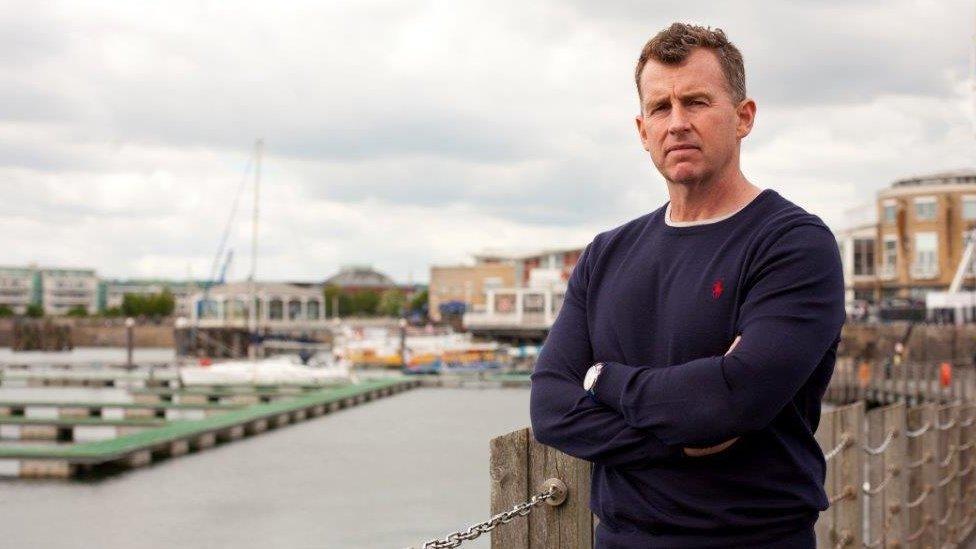Nigel Owens commends Gareth Thomas' 'braveness' after hate crime
- Published
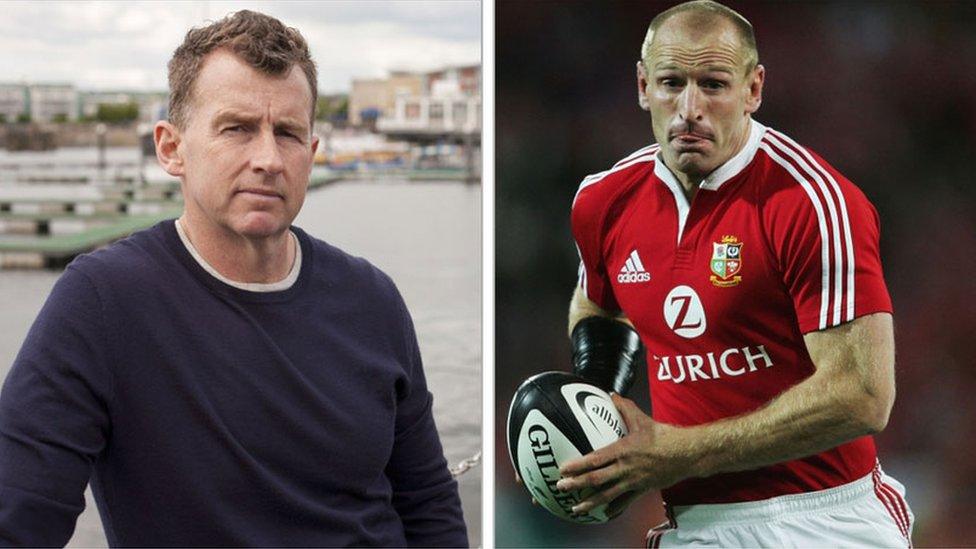
Rugby referee Nigel Owens has spoken openly about homophobic abuse in the past
Rugby referee Nigel Owens has commended Gareth Thomas on "his braveness" after he revealed he was attacked over his sexuality.
The former Wales and Lions captain was assaulted in Cardiff city centre on Saturday evening by a 16-year-old boy.
Thomas elected to use restorative justice, meaning the boy will not be charged with any offence.
Referee Owens, who is also gay, said he made a similar choice in 2015 after being sent abuse on Twitter.
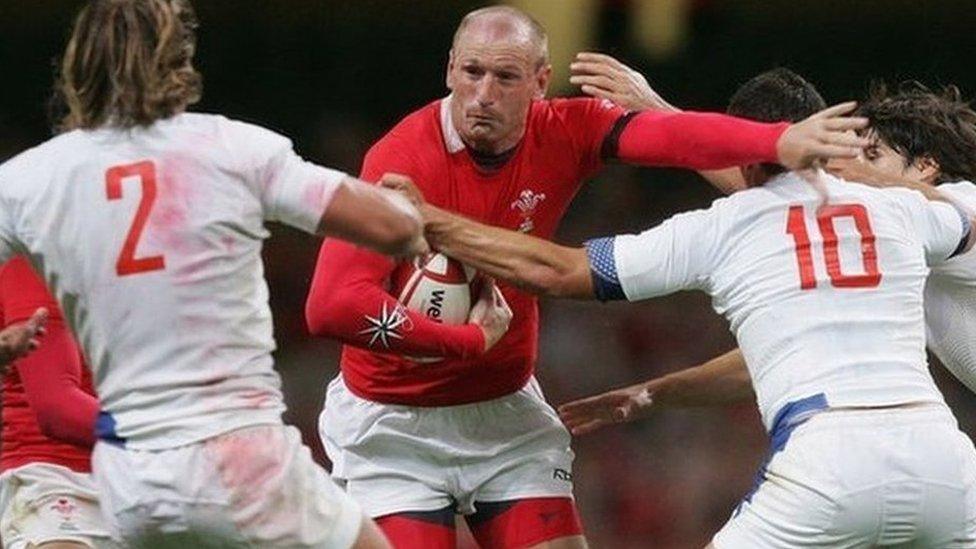
Thomas scored 41 tries and made three Test appearances for the British and Irish Lions
"I had a homophobic comment - a bit of a nasty comment - put on social media against me after the England v France game I refereed three years ago," Owens told BBC Radio Wales.
"A couple of days later I had a Facebook message off this young lad apologising saying he was drunk at the time, which is not an excuse, but he was profoundly apologetic.
"There was the option that either the police would take this on and this young lad would have a criminal record which would stay with him for the rest of his life, or you would deal with it in the same way Gareth seems to be dealing with it."
Allow X content?
This article contains content provided by X. We ask for your permission before anything is loaded, as they may be using cookies and other technologies. You may want to read X’s cookie policy, external and privacy policy, external before accepting. To view this content choose ‘accept and continue’.

Owens decided to meet 18-year-old Edryd James from Cynwyl Elfed at Carmarthen police station, where he told him "comments like this can really hurt people".
Thomas, who came out as gay in 2009, like Owens chose for the police to use restorative justice, but it is not clear if he will meet the boy in person or receive an apology through a letter or phone call.
Owens added he was "surprised" Thomas was the victim of an attack, but added "it sometimes takes it to happen to someone like Gareth and his profile" to make a difference.
Criminal barrister, Andrew Taylor, said: "He's brought it home to people how restorative justice can work, and how it exists in this country.
"A survey that was done in 2016 showed that only 28% of people had heard of restorative justice.
"And I think Alfie has done more than any judge, any politician or anybody in the criminal justice system to bring home this scheme."
Assistant Chief Constable John Drake, of South Wales Police, would not discuss Thomas' experience, but said restorative justice was "a real opportunity for the offender to hear first-hand the impact of their behaviour on that other person".
He added: "It's a very dynamic and impactive experience for them."
Andrew White, director of Stonewall Cymru, said it was "sadly not a surprise at all" that the assault Thomas was subjected to happened.
"One in four LGBT people here in Wales have experienced a hate crime in the last 12 months according to our latest research," he said.

BBC Reality Check: What is restorative justice?
Restorative justice is the meeting of victim and offender as a way of "repairing the harm and finding a positive way forward" and can take place at any point in criminal justice process.
The government launched a Restorative Justice Action Plan in 2014 and separately made at least £29m available for it. Further money was given for the Youth Justice system.
Statistics suggest in 8% of criminal incidents, victims were given the opportunity to meet the offender. Roughly a quarter took up the opportunity.
Ministry of Justice evaluation found that for every £1 spent on restorative justice, £8 is saved by the criminal justice system.
Further research suggested the practice reduced reoffending by around 14%.
- Published27 February 2018
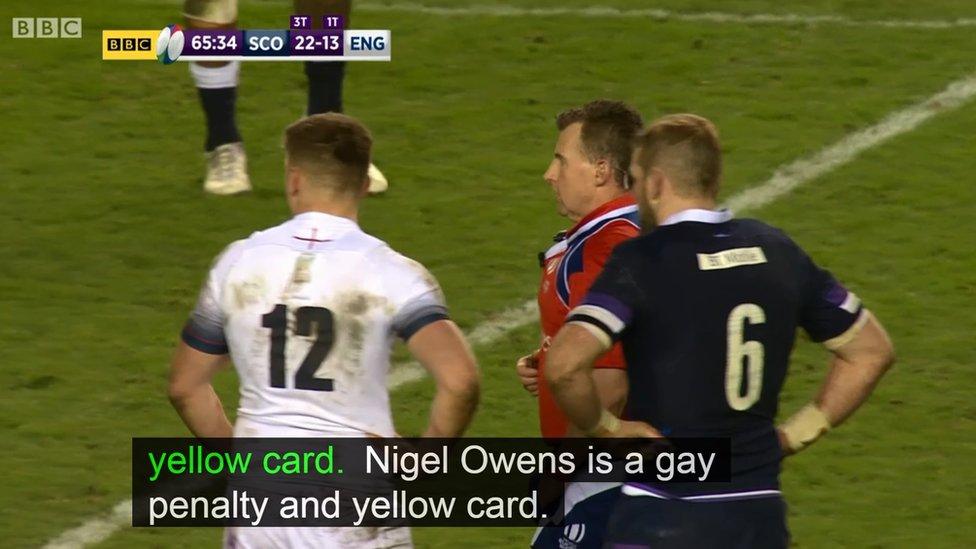
- Published18 November 2018
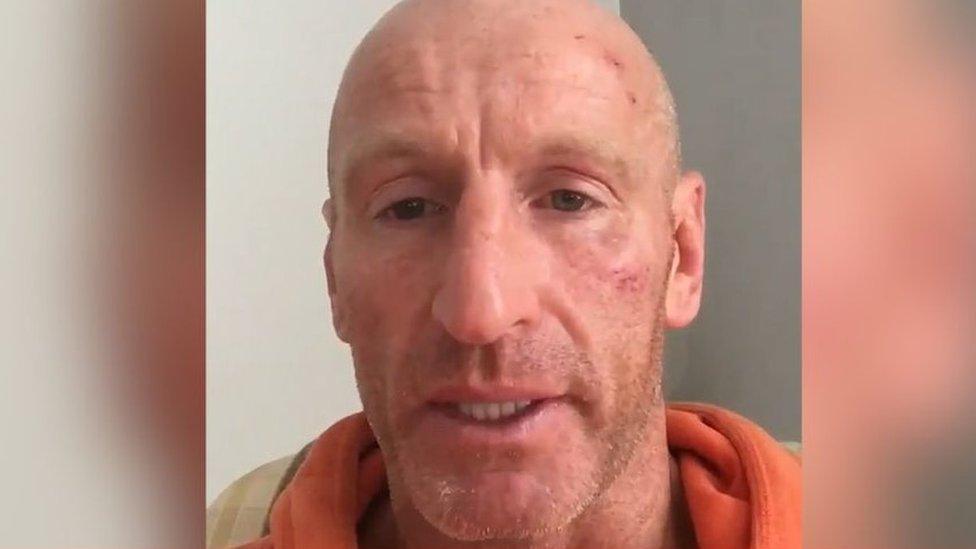
- Published24 June 2018
